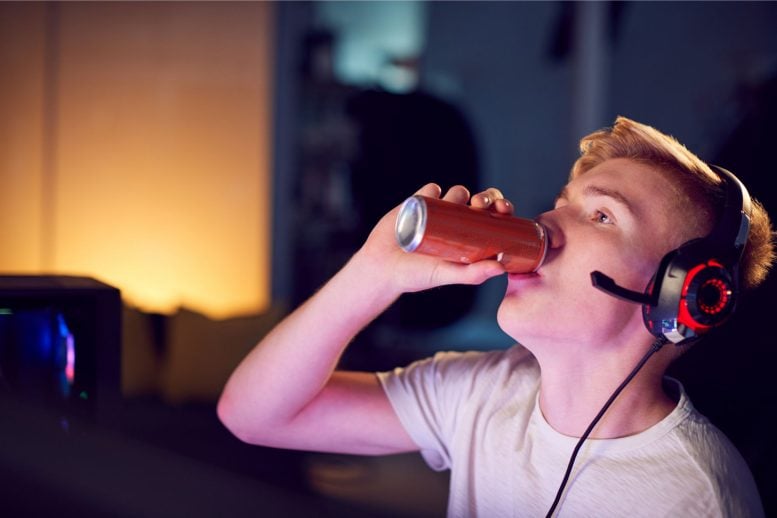
New research investigated the risks associated with energy drink consumption using data from a cohort of sudden cardiac arrest survivors at the Mayo Clinic.
A recent study published in Heart Rhythm, the official journal of the Heart Rhythm Society, the Cardiac Electrophysiology Society, and the Pediatric & Congenital Electrophysiology Society, explored the risks associated with energy drink consumption among patients with genetic heart conditions. Conducted at the Mayo Clinic, the research involved 144 survivors of sudden cardiac arrest, with 7 of these patients (5%) having consumed energy drinks shortly before their cardiac event. Although the study did not establish a direct cause-and-effect relationship, caution is advised, and doctors recommend that patients consume energy drinks in moderation.
Lead investigator of the study Michael J. Ackerman, MD, PhD, Genetic Cardiologist at Mayo Clinic and Director of the Mayo Clinic Windland Smith Rice Sudden Death Genomics Laboratory in Rochester, MN, says, “The energy drink market in the United States has been growing consistently over the past few years, raising concerns about the potential combined effects of caffeine consumption and additional unregulated ingredients in these beverages. Energy drinks are not regulated by the US Food and Drug Administration (FDA), so researching the effects that these drinks have on our patients is of utmost importance.”
Ingredients and Potential Risks
Energy drinks contain caffeine ranging from 80 mg to 300 mg per serving, compared with 100 mg in an 8-ounce cup of brewed coffee. However, most of these energy drinks contain other stimulating ingredients in addition to caffeine that are unregulated by the FDA, such as taurine and guarana. It has been postulated that the highly stimulating and unregulated ingredients alter heart rate, blood pressure, cardiac contractility, and cardiac repolarization in a potentially pro-arrhythmic manner.
Ehud Chorin, MD, PhD, Tel Aviv Sourasky Medical Center and Sackler School of Medicine, Tel Aviv University, co-author of the accompanying editorial commentary “Arrhythmogenic Foods – An Underestimated Medical Problem?” says, “Establishing a probable cause of an arrhythmia includes inquiring about a potential exposure to toxins or medications. An increasing number of substances in the standard diet are found to have unwanted cardiac effects, prompting the consideration of a novel subcategory in a patient’s clinical history intake: arrhythmogenic foods. Energy drinks fall in this category. The findings reported in this study should be viewed in the context of the large body of evidence suggesting arrhythmogenic effects of certain foods, especially when consumed in large quantities or large concentrations by high-risk patients.”
Research on Cardiac Events
In addition to examining the consumption of energy drinks among the cohort of sudden cardiac arrest survivors, the researchers also looked closely at the type of cardiac event as well as the conditions surrounding the event, such as exercise and other stressors known to be associated with genetic heart disease-associated cardiac arrhythmias.
Dr. Ackerman explains, “While there seemed to be a temporal relationship between energy drink consumption and the seven patients’ sudden cardiac arrest event, a myriad of potential ‘agitators’ that could have also contributed to a genetic heart disease-associated arrhythmia occurred, like sleep deprivation, dehydration, dieting or extreme fasting, concomitant use of QT-prolonging drugs, or the postpartum period. As such, unusual consumption of energy drinks most likely combined with other variables to create a ‘perfect storm’ of risk factors, leading to sudden cardiac arrest in these patients.”
Peter J. Schwartz, MD, FHRS, Istituto Auxologico Italiano IRCCS, Center for Cardiac Arrhythmias of Genetic Origin and Laboratory of Cardiovascular Genetics, Milan, co-author of the accompanying editorial commentary “Energy Drinks and Sudden Death: If it Swims Like a Duck …”, says, “Critics might say of these findings, ’it’s just an association by chance.’ We, as well as the Mayo Clinic group, are perfectly aware that there is no clear and definitive evidence that energy drinks indeed cause life-threatening arrhythmias and that more data are necessary, but we would be remiss if we were not sounding the alarm. At one point, clinical experience, solid understanding of pathophysiology, and common sense should join and speak up.”
Dr. Ackerman concludes, “Although the relative risk is small and the absolute risk of sudden death after consuming an energy drink is even smaller, patients with a known sudden death predisposing genetic heart disease should weigh the risks and benefits of consuming such drinks in the balance.”
References: “Sudden cardiac arrest occurring in temporal proximity to consumption of energy drinks” by Katherine A. Martinez, Sahej Bains, Raquel Neves, John R. Giudicessi, J. Martijn Bos and Michael J. Ackerman, 6 June 2024, Heart Rhythm.
DOI: 10.1016/j.hrthm.2024.02.018
“Arrhythmogenic foods—An underestimated medical problem?” by Ido Avivi and Ehud Chorin, 6 June 2024, Heart Rhythm.
DOI: 10.1016/j.hrthm.2024.03.020
“Energy drinks and sudden death: If it swims like a duck …” by Peter J. Schwartz, Fulvio L.F. Giovenzana and Federica Dagradi, 6 June 2024, Heart Rhythm.
DOI: 10.1016/j.hrthm.2024.02.043
This work was supported by the Mayo Clinic Windland Smith Rice Comprehensive Sudden Cardiac Death Program (MJA) and the Mayo Clinic Center for Translational Science Activities (CTSA) through grant number UL1TR002377 from the National Center for Advancing Translational Sciences (NCATS), a component of the National Institutes of Health (NIH).
1 Comment
My 19-year-old grandson has a 2 chambered heart. Would drinking “Red Bull” cause him to have worse effects than someone with a 3 chambered heart?
He drinks Red Bull and most of the time, he feels so bad, he has to call in sick.